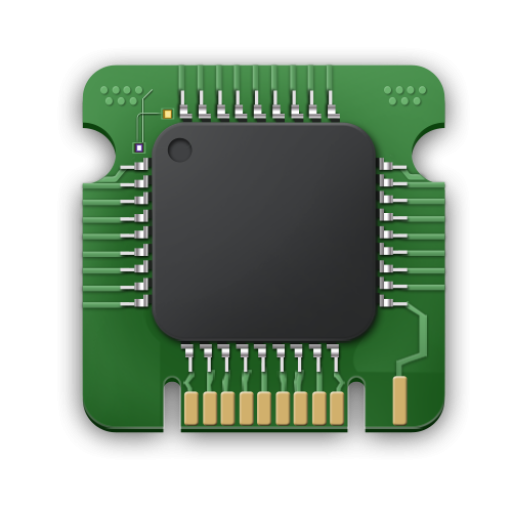The technology sector is dominated by giants like Facebook, Amazon, Apple, Netflix, and Google. However, the landscape extends far beyond these well-known names.
Using data from annual financial statements, we’ve identified the biggest and most influential tech companies in the U.S. as of 2025. These firms are shaping modern business practices, consumer behavior, and technological advancements.
The tech industry encompasses a broad range of sectors, including hardware, software, cloud computing, and consumer electronics. Our comprehensive guide will explore the diverse landscape of tech companies, from established players to emerging innovators.
We’ll examine the key players, their revenue figures, employee counts, and market positioning, providing insights into the companies that are driving innovation and growth in the technology sector.
The Evolving Landscape of the Technology Industry
The tech industry has evolved dramatically over the past few decades, transforming from primarily hardware-focused businesses to a diverse range of products and services. According to the U.S. Bureau of Labor Statistics, careers in tech, information, and computer science industries are expected to add around 377,500 openings each year from 2022 to 2032.
Today’s technology landscape features companies operating across multiple sectors, including software development, cloud computing, artificial intelligence, consumer electronics, and digital services. The boundaries between traditional industries and technology continue to blur as digital transformation affects every business sector.
| Industry Sector | Key Areas | Growth Impact |
|---|---|---|
| Software Development | Cloud Computing, AI | High |
| Consumer Electronics | Smart Devices, IoT | Moderate |
| Digital Services | E-commerce, Online Services | High |
For more information on the different types of information technology, visit TechHack. The rapid pace of innovation has created a dynamic environment where new technology leaders can emerge quickly. Understanding this evolving landscape is essential for investors, job seekers, and business leaders navigating the digital economy.
What Companies Are in the Technology Field: Definition and Scope
As digital capabilities permeate various industries, the definition of a technology company has become increasingly complex. Many of the world’s largest companies inevitably have a hand in technology, making a “tech company” difficult to define.
For instance, Amazon has tech product business areas, such as artificial intelligence and cloud computing, but Amazon is primarily a retail company. At its core, a technology company develops or manufactures technology products, services, or solutions as its primary business function.
- Defining what constitutes a technology company has become increasingly complex as digital capabilities permeate all industries.
- The technology field encompasses hardware manufacturers, software developers, internet service providers, semiconductor producers, and digital platform operators.
- Companies in the technology field typically invest heavily in research and development to create innovative products and services.
The scope of the technology field continues to expand as new innovations create entirely new business categories and opportunities. Understanding this broad definition helps identify the diverse range of companies operating within the technology ecosystem.

| Category | Description | Examples |
|---|---|---|
| Hardware Manufacturers | Companies that produce physical technology products | Apple, Samsung |
| Software Developers | Companies that create software applications | Microsoft, Google |
| Internet Service Providers | Companies that provide internet access | Comcast, AT&T |
Silicon Valley Giants: The FAANG Companies

The FAANG companies, comprising Facebook, Amazon, Apple, Netflix, and Google, are the epitome of Silicon Valley’s technological prowess. These five influential tech companies have not only dominated their respective markets but have also transformed the way we live and interact with technology.
The term “FAANG” represents these companies: Facebook (now Meta), Amazon, Apple, Netflix, and Google (now part of Alphabet). They have evolved from startups to global corporations, collectively representing trillions of dollars in market capitalization and employing hundreds of thousands globally.
Key characteristics of FAANG companies include:
- Pioneering innovative business models that disrupt traditional industries
- Expanding beyond core businesses to develop diverse product and service ecosystems
- Influencing areas beyond technology, such as entertainment and retail
- Investing heavily in emerging technologies like AI and virtual reality
These top tech companies continue to shape the future of the technology industry.
Apple Inc.: Innovation and Consumer Electronics

Apple Inc. has revolutionized the way we interact with technology, offering a range of products that seamlessly integrate into our daily lives. As a leader in the tech industry, Apple has consistently pushed the boundaries of innovation since its inception in 1976 by Steve Jobs, Steve Wozniak, and Ronald Wayne.
The company has established itself as a premier brand in consumer electronics, with a product ecosystem that includes the iPhone, iPad, Mac computers, Apple Watch, and various accessories. Apple’s services division, including the App Store, Apple Music, Apple TV+, and iCloud, has become an increasingly important revenue stream, contributing to the company’s revenue exceeding $383 billion.
With a focus on vertical integration, controlling both hardware and software, Apple has created a distinctive business model. The company continues to invest in emerging tech like augmented reality and artificial intelligence, further solidifying its position in the market.
Alphabet (Google): Search and Beyond

Alphabet, founded in 2015, is a multinational conglomerate created to oversee Google and other subsidiaries, allowing for greater autonomy among its diverse business units.
Under Alphabet, Google remains the largest and most profitable subsidiary, dominating the global search market and operating the world’s most widely used digital advertising platform. The company has expanded into various technology sectors, including cloud computing, artificial intelligence research, autonomous vehicles, healthcare technology, and smart home devices.
Through subsidiaries like DeepMind, Alphabet is pioneering advanced artificial intelligence research, and its data-driven approach gives it significant advantages in developing next-generation technologies and services.
Microsoft: Software and Cloud Computing Leader

As a pioneer in the software industry, Microsoft has successfully transitioned into a diversified technology leader. Founded in 1975 by Bill Gates and Paul Allen, the company revolutionized personal computing with its Windows operating system and Office productivity software.
Under CEO Satya Nadella’s leadership, Microsoft has made a significant pivot to cloud computing with its Azure platform becoming a major revenue driver. The company’s business now spans consumer and enterprise software, hardware, gaming, and cloud services, with revenue reaching $211.9 billion.
Microsoft’s strategic acquisitions, including LinkedIn, GitHub, and Activision Blizzard, have expanded its presence across professional networking, software development, and gaming. The company continues to invest in emerging technologies like artificial intelligence and mixed reality.
Meta (Facebook): Social Media Dominance

Since its founding in 2004, Meta has become synonymous with social media, leveraging its platform to connect billions of users worldwide. The company has expanded its reach through strategic acquisitions, including Instagram, WhatsApp, and Oculus VR, solidifying its position in the media and technology sectors.
Meta’s services now encompass a broad range of digital experiences, from social networking to virtual reality. With a revenue of $134.9 billion, the company continues to face regulatory challenges regarding privacy, content moderation, and market dominance.
Global Technology Leaders Outside the US
The global tech industry is diverse, with prominent companies originating from outside the United States. While American companies often dominate technology discussions, numerous global technology leaders have emerged from Asia, Europe, and other regions.
These international technology firms bring diverse approaches to innovation and often specialize in hardware manufacturing, telecommunications, and consumer electronics. For instance, companies like Samsung Electronics from South Korea and Huawei from China have become significant players in the global tech market.
| Company | Location | Specialization |
|---|---|---|
| Samsung Electronics | Suwon, South Korea | Consumer Electronics, Semiconductors |
| Foxconn | New Taipei City, Taiwan | Electronics Manufacturing |
| Huawei | Shenzhen, China | Telecommunications Equipment |
As the global distribution of technology leadership continues to evolve, understanding these global tech companies provides a more complete picture of the technology landscape beyond Silicon Valley’s influence.
Samsung Electronics: South Korean Tech Giant

Samsung Electronics stands out as a major technology manufacturer with diverse business divisions. The company produces a wide range of consumer electronics, including smartphones, televisions, home appliances, and digital displays.
As a global leader in tech, Samsung is also renowned for its semiconductor manufacturing capabilities, producing memory chips and processors that power devices from numerous brands worldwide.
With revenue exceeding $234 billion and over 270,000 employees, Samsung operates as a vertically integrated company, controlling many aspects of its supply chain and offering a variety of innovative products.
Foxconn: Manufacturing Powerhouse

As the world’s largest electronics contract manufacturer, Foxconn plays a crucial role in the tech industry. Headquartered in New Taipei City, Taiwan, Foxconn (Hon Hai Precision Industry Co., Ltd.) is a leading company that manufactures products for many major technology brands, including Apple, Microsoft, and Amazon.
With over 767,000 employees and $222 billion in revenue, Foxconn’s massive manufacturing campuses, primarily in mainland China, are among the world’s most advanced electronics production facilities. The company focuses on high-volume, precision manufacturing with a continuous improvement strategy, also expanding into hardware and new areas like semiconductor production and electric vehicles.
Huawei: Telecommunications and Networking

Huawei Technologies has grown exponentially since its inception in 1987, becoming a leader in telecommunications infrastructure. With operations in over 170 countries, Huawei is a global provider of information and communications technology infrastructure and smart devices. The company is known for its telecommunications equipment and smartphones, driving innovation in networking solutions.
Huawei’s business spans telecommunications equipment, enterprise networking solutions, cloud services, and consumer electronics. The company has been at the forefront of 5G network technology development.
Emerging Technology Sectors and Companies
The tech industry is on the cusp of a revolution with emerging sectors such as AI, quantum computing, and clean technology leading the charge. These emerging sectors are creating new opportunities for innovative tech companies to develop breakthrough products and services.
- Artificial intelligence and machine learning companies are transforming industries from healthcare diagnostics to financial services.
- Quantum computing startups are working on the next generation of computing systems.
- Clean technology firms are addressing environmental challenges through digital innovations.
Some of the key technology subsectors to watch include electronics and electrical equipment, computer software, and information technology services. The development in these areas is expected to drive significant growth in the industry.
| Emerging Sector | Description | Potential Impact |
|---|---|---|
| AI and Machine Learning | Developing intelligent systems | Transforming industries |
| Quantum Computing | Next-gen computing systems | Solving complex problems |
| Clean Technology | Addressing environmental challenges | Sustainable solutions |

The emergence of these sectors represents the frontier of technology development and offers significant growth potential for tech companies that can navigate technical and market challenges.
Semiconductor and Hardware Companies
![]()
Semiconductor companies like Intel, founded in 1968, are at the forefront of technological advancements, producing critical hardware components. Intel is one of the world’s largest semiconductor chip manufacturers, specializing in microprocessors and graphic chips for personal computers.
These semiconductor and hardware companies form the foundation of the technology industry by creating the physical components that power digital devices and systems. Leading manufacturers like TSMC, Nvidia, Qualcomm, and AMD design and produce essential products.
The global chip shortage highlighted the strategic importance of semiconductor manufacturing capacity and supply chain resilience. Emerging hardware categories include quantum computing components and specialized AI accelerators, driving innovation in the technology sector.
For more information on semiconductor fabrication plants, visit Wikipedia’s list of semiconductor fabrication plants.
Software and Cloud Computing Firms

The rise of cloud computing has transformed the software industry, enabling greater flexibility and scalability. Software and cloud computing firms have revolutionized how businesses access computing resources and services.
Major enterprise software companies like Microsoft, Oracle, SAP, and Salesforce provide critical business applications. Cloud computing providers, including Amazon Web Services, Microsoft Azure, and Google Cloud Platform, offer infrastructure, platform, and software services through flexible subscription models.
The software-as-a-service (SaaS) model has created opportunities for specialized applications. Open source software development has become increasingly important, with companies building successful businesses around community-developed software.
E-commerce and Internet Service Companies

Companies operating in the e-commerce and internet services sector are driving technological innovation and changing consumer behavior. Major e-commerce platforms like Amazon and Alibaba have created global marketplaces, connecting buyers and sellers while providing sophisticated logistics and payment infrastructure.
These companies, along with streaming media services such as Netflix and Spotify, have disrupted traditional distribution models through subscription and advertising-based business models. They leverage massive amounts of user data to personalize experiences, optimize operations, and develop new products and services.
While not always categorized as “pure” technology companies, these firms employ large numbers of software engineers and data scientists, driving tech innovation in the process.
Conclusion: The Future of Technology Companies
As we look to the future, it’s clear that tech companies will continue to shape our world. The technology landscape is evolving rapidly, with established companies adapting to new challenges while innovative startups create entirely new market categories.
Emerging technologies like artificial intelligence and quantum computing are likely to produce the next generation of influential technology companies. As digital transformation affects every sector of the economy, the boundaries between technology and other industries will continue to blur.
With the global distribution of technology innovation expanding, new centers of excellence are emerging worldwide. The future of the tech industry is bright, with careers in technology expanding at a rapid rate, adding around 377,500 openings each year from 2022 to 2032.
FAQ
What are the major players in the tech industry?
The major players in the tech industry include FAANG companies such as Apple, Amazon, Alphabet (Google), Meta (Facebook), and Microsoft, as well as other global technology leaders like Samsung Electronics, Foxconn, and Huawei.
What is cloud computing, and how do tech companies utilize it?
Cloud computing refers to the delivery of computing services over the internet. Tech companies like Microsoft, Amazon, and Google utilize cloud computing to provide scalable, on-demand computing resources, storage, and applications to businesses and individuals.
How do semiconductor companies contribute to the tech industry?
Semiconductor companies like Intel, Qualcomm, and NVIDIA design and manufacture semiconductor components that are crucial for a wide range of electronic devices, from smartphones to personal computers, and play a vital role in the development of emerging technologies like artificial intelligence.
What role do e-commerce companies play in the tech industry?
E-commerce companies like Amazon provide online marketplaces for consumers to purchase goods and services, leveraging web development and digital marketing to create seamless user experiences and drive business growth.
How do tech companies address cybersecurity concerns?
Tech companies address cybersecurity concerns by investing in cybersecurity solutions, such as threat detection, incident response, and security software, to protect their customers’ data and prevent cyber threats.
What is the significance of software engineering in the tech industry?
Software engineering is crucial in the tech industry as it enables the development of high-quality, reliable software applications that power a wide range of devices and systems, from smartphones to enterprise software platforms.







